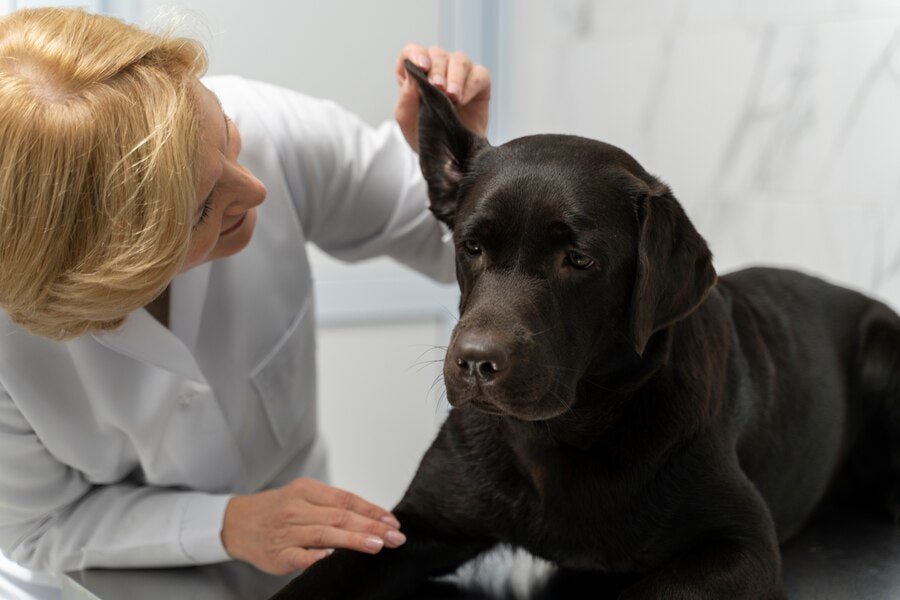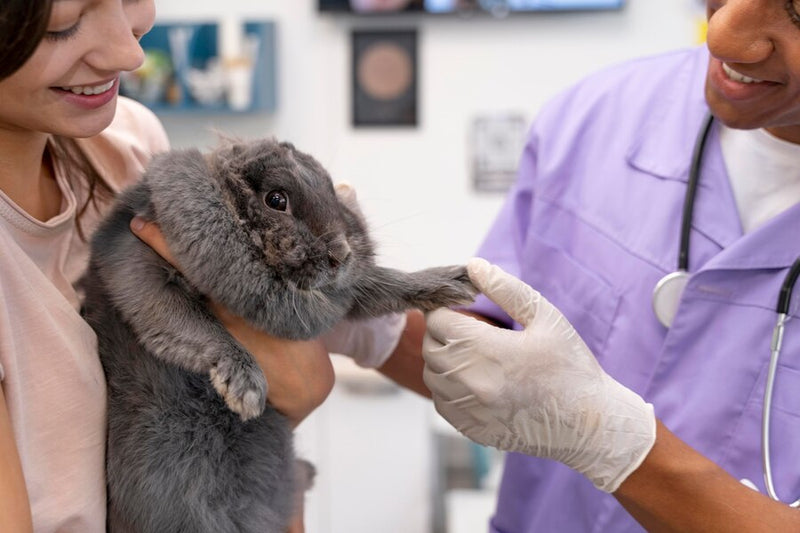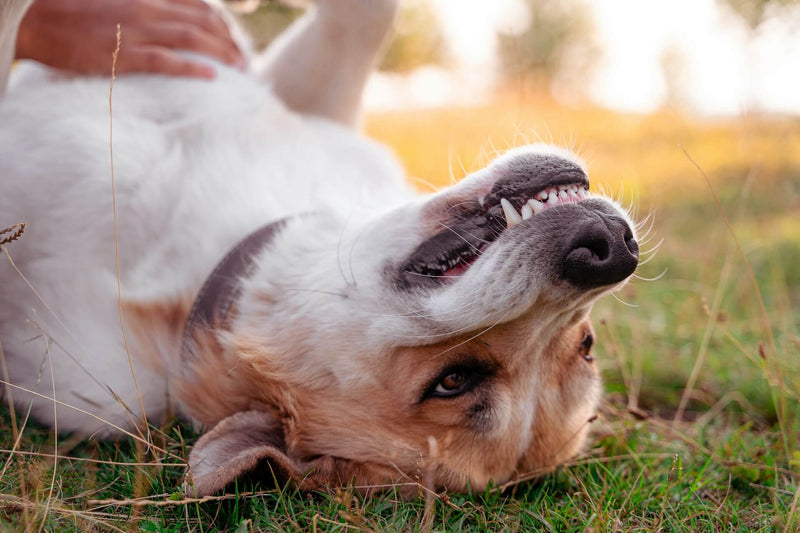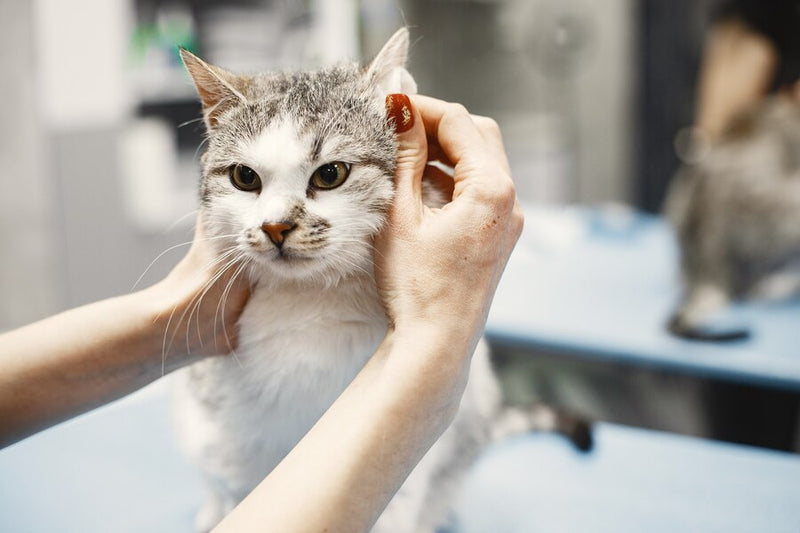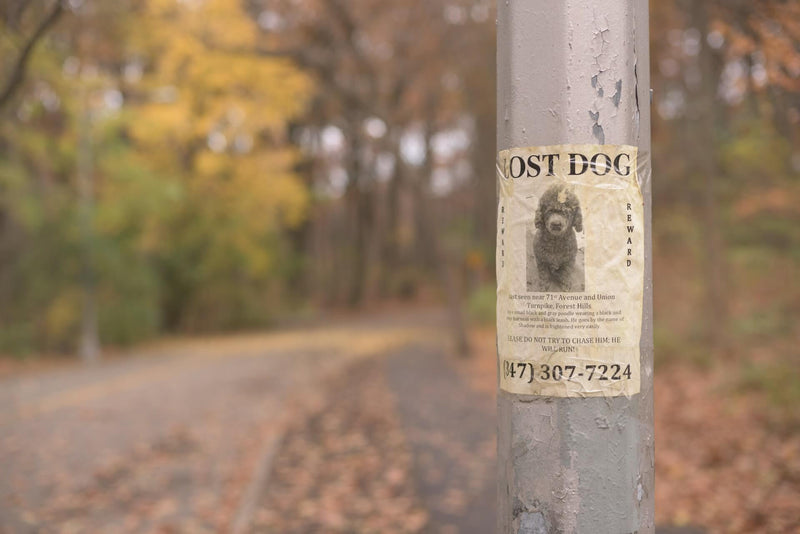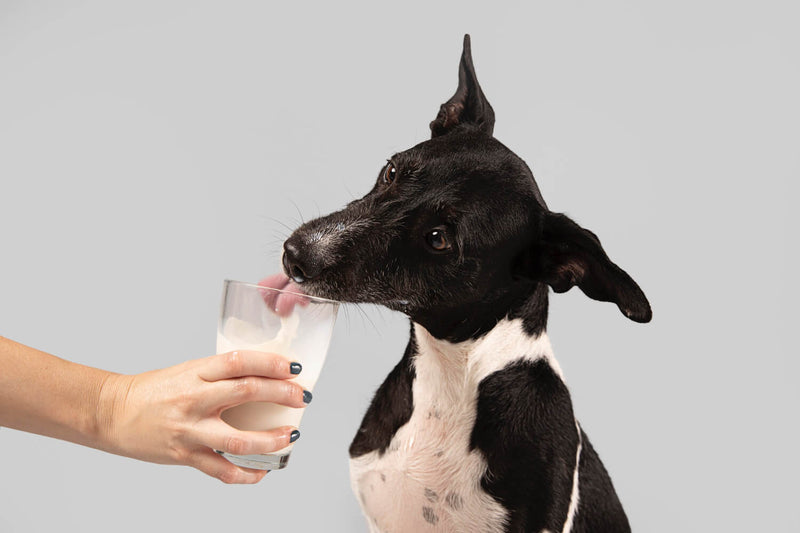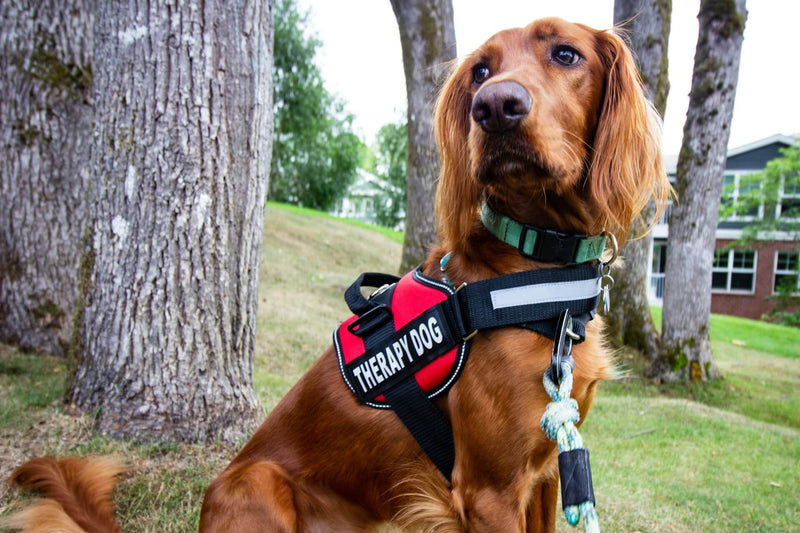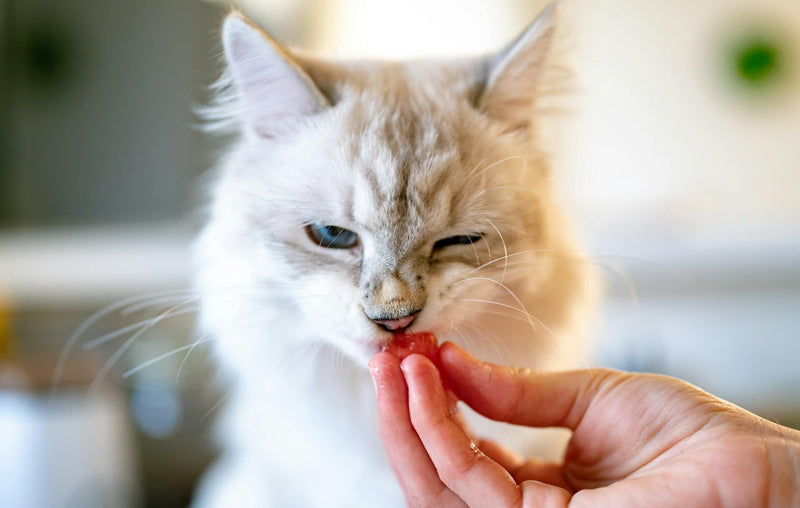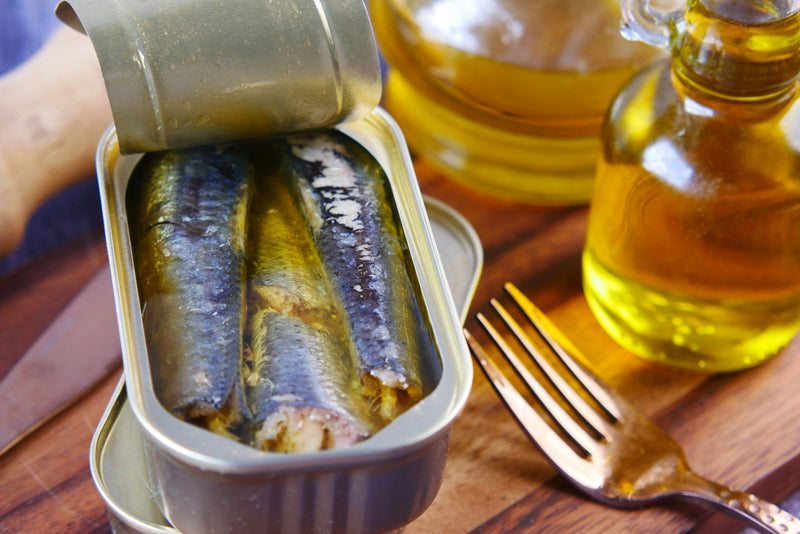
Welcome to Gritty Pet Co.
Your Canadian, specialty Pet Health & Wellness destination. 🇨🇦

Vet Reviewed & Approved
Dr. Ibrar A. is our veterinarian and a key member of our team. ✅
Keep your pup's ears healthy with our guide on effective dog ear cleaners. Comfort meets care for your dog's best ear health.
A responsible dog parent regularly ensures the overall health of their dog, often opting for high-quality food, regular walks, time for play and training, etc. However, canine ear cleaning is often overlooked.
Proper dog ear cleaning and maintaining ear hygiene are paramount to supporting the overall health and comfort of your fur baby (1).
This guideline will explore different aspects of dog ear cleaning, ranging from cleaning frequency, detecting early symptoms of infections, precautionary measures, and the influence of diet and anatomy on your dog’s ear health.
Key Takeaways
Consult Your Vet for a Custom Cleaning Schedule: Ear cleaning needs vary by breed, activity level, activity type, and individual health. Regular vet consultations are essential to establish a tailored ear cleaning routine that prevents infections and maintains ear health while simultaneously maintaining the ear's natural oils and protective elements.
Select the Right Ear Cleaning Solution: Opt for vet-recommended ear cleaners that quickly evaporate, balance pH, and gently remove wax without irritating the ear canal. Avoid ear-cleaning solutions that are water-based, hydrogen peroxide-based, and vinegar-based to prevent infection risks.
Recognize When to Seek Professional Help: Cleaning at home is beneficial for maintaining ear hygiene, but infections require a vet's care. Signs like redness, swelling, persistent odour, or discomfort indicate it's time to consult your veterinarian.
- Practice Gentle and Consistent Ear Handling: Acclimatize your dog to ear cleaning as a positive experience. Use gentle handling, soothing praise, and treats during each session. This helps prevent fear, making routine cleanings stress-free for both you and your pet.
Table of content
Cleaning Frequency: Vet Advice on Breed-Specific Cleaning Needs
Ear issues vary in different breeds due to the length of ear hair, ear shape (2), and for what the dog was bred.
Some dog breeds require frequent ear cleaning, such as dogs with upright or cropped ears which are open to debris (German Shepherd or Husky), while others may perform well with less attention, such as dogs with small ears that are held close to the head (Whippet or Bulldog). Similarly, some dog breeds are more prone to wax build-up, such as dogs bred for swimming (Golden Retriever or Poodle), and therefore need regular cleaning.
Work with your vet to create an appropriate ear-cleaning schedule for your dog's needs.

Dog Ear Anatomy And Breeds At Higher Risk
Dog breeds have different ear anatomy which is often related to their breed's intended job or function. Because of the many jobs that dogs have routinely done, and the many places in which they have traditionally worked, dog ears have been selectively bred to support their work and environment.
Long, Pendulous Ears
Dogs with long pendulous ears are at high risk of ear infection due to low air circulation and high moisture retention (3).
Bassett Hounds
Cocker Spaniel
Beagle
Golden Retriever
Narrow Ear Canal
Dogs with narrow ear canals are prone to inflammation and ear infections due to the ear's difficulties in expelling irritants and foreign debris.
- Shar Pei
- Bulldog
- Chow
How Do I Recognise Symptoms And Schedule Early Vet Visits?
It is essential to check your dog's ear for any abnormalities or potential problems regularly so you can catch issues before they become critical. Early detection of any of these symptoms and prompt treatment by a veterinarian will help you protect your dog from any complications (4).
Foul odour: Persistent discharge or foul smell is an indication of an underlying condition.
Swelling and redness: Both are indications that there is an infection or skin allergy.
Rubbing and scratching: Frequent scratching and rubbing indicate discomfort.
Head shaking: Loss of balance or signs of discomfort will often cause a dog to shake its head in an attempt to release pressure or dislodge an irritant.
Sensitivity: Some dogs display signs of pain or sensitivity when their ears are manipulated. These may be wincing, yelping, retreating, tilting their head towards or away from your hand or pressure, or showing warning signs like lip licking, showing the teeth, and whale eye.
Your vet can help your dog by performing a thorough examination and treating underlying issues.
Is It Fine To Use A DIY Solution To Clean My Dog’s Ears?
Some people encourage using DIY solutions to clean their dog’s ears, however, unregulated solutions can cause more harm and discomfort to your pup.
DIY solutions may contain harsh ingredients that can damage your dog's ear, complicating the existing condition. DIY solutions are not recommended by vets because they lack regulation, introduce pH imbalance to the ear, and may pose a risk or allergic reaction or inflammation.
Here are some tips for what to look for in over-the-counter solutions.
Choosing Reputable Brands Focused on Canine Health: Look for ear cleaners from brands with a strong reputation in pet care, specifically those that focus on products for dogs. It's important to always read the label carefully to understand the product's formulation and directions for use, ensuring it meets your dog's specific health requirements.
Selecting Safe and Effective Ear Cleaners: Prioritize ear cleaning solutions specifically formulated for dogs, steering clear of any potentially harmful substances like alcohol or chlorhexidine, which might cause irritation to sensitive ear tissues.
Ingredient Comprehension for Optimal Ear Health: Favor ear cleaners that incorporate active enzymes, as these gently and efficiently tackle bacteria and yeast, ensuring a softer yet potent cleaning action.
How Do I Clean My Dog’s Ears Safely At Home?
Cleaning dog ears at home is an easy process; however, it demands a gentle and careful approach in order to keep your furry buddy calm and compliant. Follow these steps to master the doggy-ear-clean:
Prepare: Gather all the necessary items for ear cleaning, including cotton pads, a vet-approved ear solution, and treats for reward.
Position: Finding a suitable area that is well-lit and where your dog feels at ease is important. You can either put your dog in a sitting or lying position.
Inspection: Examine your dog’s ear thoroughly by lifting up the ear's flap. Look for any signs of redness, swelling, or inflammation before you begin. If the ear is weeping, smelly, or has a lodged foreign object in it, go to the vet immediately.
Clean: Apply a small portion of the ear-cleaning solution to the cotton pad. Insert it, and clean the other flap area and inner ear canal. Avoid deep insertions and never rotate the pad towards the head as this could damage the dog's hearing.
Reward: Positive reinforcement is essential to encourage your dog to have a positive response. Offer treats as a reward to associate positivity with this experience.
Repeat the same process on the other ear, keeping in mind to avoid over-cleaning, as it may disrupt the ear's natural protection.
If you face any resistance from your dog's ear during ear cleaning, stop it immediately and visit your vet.
Allergen Management
Dogs with sensitivities often find themselves at a higher risk for ear issues, often due to an increase in yeast or bacteria within the ear. It's crucial for pet parents to understand the unique needs of their sensitive companions and to provide them with additional care and attention.
This means being vigilant about potential allergens in their environment and diet, choosing appropriate ear-cleaning solutions, and maintaining regular check-ups with a vet to manage any symptoms effectively.

FAQ
1. How Often Should I Clean My Dog's Ears?
The frequency of ear cleaning depends on your dog's breed, activities, and ear health. Some dogs, especially those with long ears, swimming habits, or prone to wax buildup, may require weekly cleaning. In contrast, others might need less frequent care. Always consult with your vet for a personalized schedule.
2. What Should I Use To Clean My Dog's Ears?
Use a vet-approved ear cleaning solution designed specifically for dogs. The best cleaners evaporate quickly, match the skin's natural pH, dissolve wax without stripping natural oils, and do not irritate the ear canal. Avoid using water-based solutions, hydrogen peroxide, or vinegar due to risks of infection or irritation.
3. Can I Treat My Dog's Ear Infection At Home?
While cleaning dirty ears at home is safe, treating an ear infection requires a veterinarian's intervention. Infections often need antibiotic drops alongside ear cleaning and should not be addressed with over-the-counter solutions alone.
4. What Are The Signs My Dog Needs Its Ears Cleaned?
Watch for signs like a mild odor, excessive head shaking, or visible dirt. However, if you notice redness, swelling, a yeasty smell, or if your dog appears in pain, these could indicate an infection or other serious issue, warranting a vet visit.
5. How Do I Safely Clean My Dog's Ears At Home?
Gently lift your dog's ear flap and apply the cleaning solution without inserting the nozzle deep into the ear canal. Massage the base of the ear to distribute the cleaner, then allow your dog to shake its head before wiping away any excess with cotton wool or a soft cloth. Always start slow, with plenty of treats and praise to make it a positive experience for your pet.
Top 3 YouTube Videos on Dog Ear Cleaning
1. How To Clean Your Dogs Ears | Explained by a Veterinary Professional
Watch this for a veterinarian's step-by-step guide on safely cleaning your dog's ears, including what to watch out for to prevent infections.
2. Cleaning A Dog's Ears - Veterinary Training
Ideal for those seeking a deeper understanding, this video provides a comprehensive look at the techniques used by professionals for thorough ear cleaning.
3. Dog Yeast Ear Infections: Great OTC Home Remedy
If you're concerned about yeast infections in your dog's ears, this video discusses over-the-counter remedies and preventive measures to keep those pesky infections at bay.
External Links for Further Reading
PDSA's Overview on Ear Problems in Dogs: This resource from the PDSA covers a broad spectrum of common ear conditions, including infections, mites, and more, detailing symptoms, causes, and when to contact a vet for each. Visit PDSA
BetterPet's Guide on Common Dog Ear Problems: BetterPet provides an engaging exploration of canine ear issues, such as infections and foreign object removal, offering practical advice on treatment and prevention. Visit BetterPet
Conclusion
Ear cleaning is a must-do to ensure the overall well-being of your dog. By following our ear-cleaning tips and learning to recognize the symptoms of ear infections or inflammation early, you can support your dog's overall health and comfort. Happy trails!
References
- 1. Krupaci, A., Muste, A., Beteg, F., & Scurtu, L. (2011). Evaluation of ear clearance in healthy dogs.
- 2. Packová, A., & Takáčová, D. (2020). Dogs health related to ear cropping. Folia Veterinaria, 64(1), 77-82.
- 3. Cole, L. K. (2009). Anatomy and physiology of the canine ear. Veterinary Dermatology, 20(5‐6), 412-421.
- 4. Jacobson, L. S. (2002). Diagnosis and medical treatment of otitis externa in the dog and cat. Journal of the South African Veterinary Association, 73(4), 162-170.

